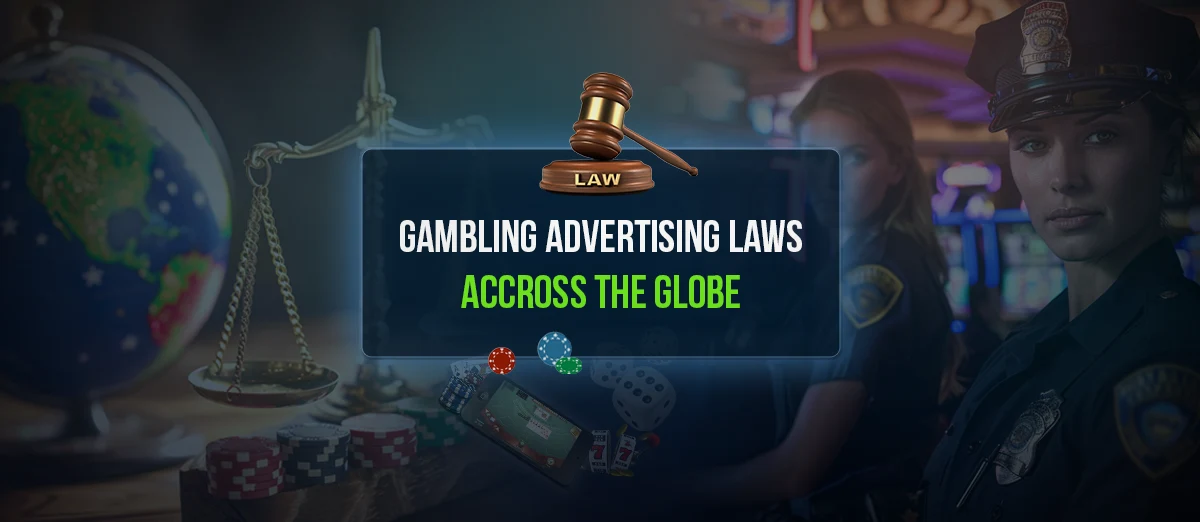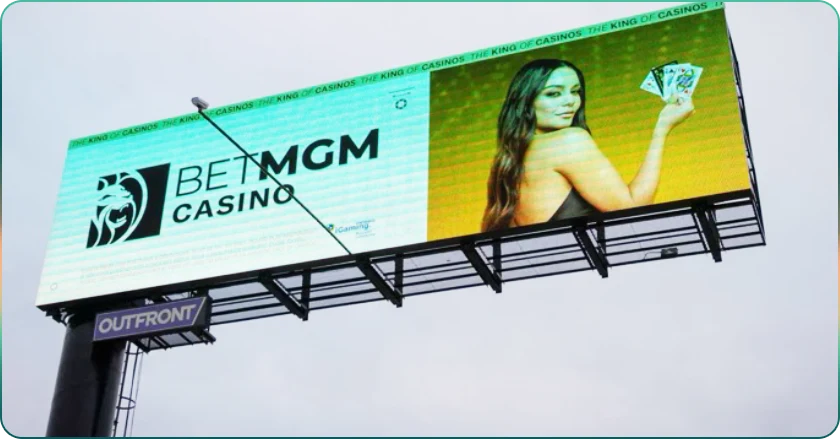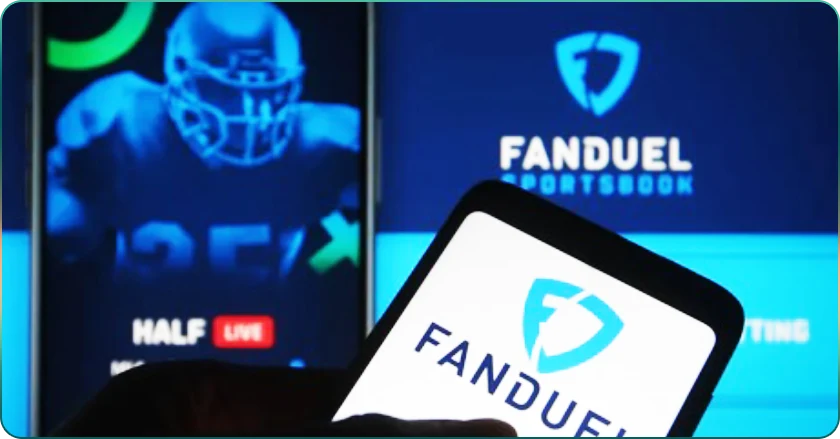The Complex Landscape of Gambling Advertising Regulations around the World

The gambling industry, particularly its online sector, may seem straightforward at first glance. However, a deeper dive reveals a fascinating and intricate landscape, with various forms of legislation for different elements making frequent appearances in news headlines over the past few years.
One of the biggest misconceptions is that there is blanket consistency in what is allowed across every market regarding online gambling. However, each country has its own set of rules when it comes to gambling advertisement and overall regulation. Some countries have stricter regulations depending on a number of factors, such as how mature the market is.
And, regulation can be so protracted that it covers many different factors, ranging from legal gambling age to the types of games that are allowed on various websites.
One factor in play that many do not even consider, is gambling advertising laws that illustrate how gambling companies advertise and market their products and services.

Similarities and Differences between Various Country Regulations
Certainly, over the last couple of decades, in countries where gambling is regulated, such as the UK, there have been numerous issues that have arisen that have caused some new laws to be introduced.
In the wider European market, we have seen many countries pass legislation for online gambling - especially during the last 10 years and, as a consequence, it has resulted in many different tranches of legislative minutiae.
Particularly relating to the advertising of gambling sites, at an absolute minimum, every country prohibits the marketing of gambling materials to minors and beyond this, every country differs in terms of harshness. In some cases, it is also a reflection of how long they have been legally operating as an online gambling market.
Some country’s authorities may not yet have the required knowledge or experience or could have a completely different philosophy regarding their views on gambling advertising, whether these be stricter or more lenient, depending on a country’s political stance.
As touched upon, each country and even geographical region has its own predefined set of legislation when it comes to gambling advertising, and while some differ from others, there is also some crossover, which we have explored below.
Gambling Advertising Laws across Scandinavia and Europe
Scandinavia is very interesting when it comes to its online gambling legislation, with iGaming having proved to be a considerably popular activity over the last couple of decades, in addition to it being an extremely lucrative industry.
Sweden, in particular, is a rife market, and it is no coincidence that numerous brands, such as the behemoth Kindred Group, originate in the country. When it comes to its laws regarding gambling advertising, Sweden is relatively liberal, with only restrictions placed on advertising to those who are under the legal gambling age, which is 18 years old - the same is also the case in neighboring Norway.
However, in contrast to Sweden, Norway introduced amendments to the Broadcasting Act in May 2020, which would see the new law come into activation from January 1, 2021, which illustrated the restriction of advertising illegal gambling on television in addition to at the request of audio-visual media services.
Meanwhile Iceland and Finland both have a partial ban on gambling advertising. For the former, any advertising has to be broadcast in Icelandic, in addition to reflecting the commercial interest. In Finland, gambling advertising is completely prohibited for radio and television broadcasts in addition to cinematic programs.
Denmark appears to be one of the most lenient countries when it comes to gambling advertising, perhaps reflecting the country’s high GDP (Gross Domestic Product) and high standard of living. As a result, gambling advertising is allowed; however, the underlying message should promote responsible gaming and not induce suggest that it can improve social standing or financial circumstances.
The Baltic region has been one surprising development in the online gambling industry over the last few years, with a significant demand appropriately underpinned by a robust infrastructure. It is interesting to note, however, that gambling advertising legislation differs considerably between countries. In Latvia, legislation denotes a complete ban on advertising in and outside all gambling establishments, and this also applies to the Internet.
Estonia by contrast, could not be any more different. For all intents and purposes, gambling advertising is allowed; however, in a similar fashion to Denmark, gambling entities cannot be seen to be inviting people to participate in gambling or claim that people can gain a financial advantage from this.
Lithuania has a partial gambling advertising ban. This means that advertising is partially banned, especially any form of marketing that actively encourages gambling.
Central and Eastern European countries definitely differ in terms of how strict gambling advertising is. Arguably, the strictest country in relation to gambling advertising is the Netherlands, which, since it regulated online gambling in 2021, has significantly clamped down on what were already tight gambling laws. In July last year, the country’s regulator, the Kansspelautoriteit (KSA), implemented a ban on virtually all forms of gambling advertising in a bid to limit addiction as much as possible. Consequently, advertising via nearly all media channels was banned, in addition to marketing in public places.
Germany has somewhat of a convoluted approach when it comes to gambling advertising. At its discretion, the regulator can grant operators permission to advertise on television and the internet, however, during and in between sports broadcasts, betting advertising is prohibited.
As it stands, the UK gambling industry is one of the most liberal countries when it comes to gambling advertising; however, brands are required to have a license to operate in the UK. Advertisements are carefully monitored so it does not appear as though they are advocating gambling as a means of gaining an advantage, as well as ensuring there is no marketing to minors.
Legislation in Emerging Markets
Over the last couple of years, especially in Europe, we have seen online gambling become regulated, with some of these showing robust potential and, as a result, it makes their advertising laws all the more interesting.
The Southern European countries of Greece, Macedonia, Serbia, Hungary, Slovenia, Montenegro and Bosnia and Herzegovina, for example, all follow relatively liberal gambling marketing laws, with the exception of advertising to minors.
Meanwhile, by contrast, in the region, the countries of Albania and Kosovo strictly prohibit gambling advertising, which includes via the mediums of print, electronic and audio-visual. However, updates from gambling organizations in the form of emails or newsletters are allowed.
The increasingly progressive gambling market of Italy, though, has what can be deemed as a partial ban on gambling advertising. Every product and service related to gambling in Italy is prohibited from advertising on television, the internet and the radio.
It also consists of product placement that relates to the distribution of branded materials that are associated with gambling products or industry events. There are exceptions, which consist of signs for gambling establishments and website’s domain.
Interestingly, Austria, France, Switzerland and Spain permit gambling advertising, apart from minors, while the swiftly growing market of Portugal has a partial ban. This consists of not targeting minors in addition to not being allowed to advertise between the hours of 7.30 am to 10.30 pm to help reduce the risk of gambling addiction among vulnerable people.
What Are the Gaming Ad Regulations in the United States?
Arguably, what is going to be the biggest gambling market in the world in the next few years, the US has witnessed explosive growth over the last four years since there was almost a domino effect of states legislating online gambling.
However, at first, gambling legislation was almost non-existent in these states, which were initially focused on just making money via tax revenue on gambling companies. Just recently, though, in some states, many legislators have started to introduce gambling advertising legislation that, at the very least, prohibits marketing to minors, while there has also been encouragement to advertise the prevention of gambling addiction.
Interestingly, in what was somewhat of a surprise in the industry, notable gambling firm FanDuel fought against a proposed crackdown on advertising and encouraged a different stance on this.
In New York, a particularly lucrative state for the operator, FanDuel lobbied regulators to rethink a proposed ban on platforms from using certain words that could be deemed as posing a risk to those who could be or are at risk of developing an addiction to gambling.
Over the last two years, operators have spent billions on gambling advertising in what is the most lucrative state in the industry. Previously, multiple operators were in favor of proposed legislation prior to the regulation of the industry and this move from FanDuel has been met with substantial criticsm.
“It’s the biggest hypocrisy,” revealed Brianne Doura-Schawohl, a lobbyist for problem gambling prevention. “It seems not only disingenuous to the public, but also the policymakers that probably took many of them at their word that responsible gambling was a priority.”
Jim Maney, the executive director at the New York Council on Problem Gambling, admitted that a lot more could be done to help prevent problem gambling, with advertising clearly having an adverse effect: “I think the industry could do more to assist. It may be burdensome, but we have to make sure that we are protecting the most at-risk populations.”
Where lawmakers in New York will likely need to strike a balance with this is when considering the amount that gambling generates in taxation every month for the city, with billions of dollars having been contributed over the last couple of years.

Balancing Growth and Social Responsibility
In conclusion, the landscape of gambling advertising regulations varies widely across the globe, reflecting diverse national philosophies and degrees of market maturity. From stringent bans in countries like Norway and the Netherlands aimed at curbing addiction, to more liberal policies in places like the UK and Denmark that emphasize responsible gaming, each jurisdiction tailors its approach based on unique cultural, economic, and political factors.
There is the argument from an operator’s perspective that very severe advertising restrictions could impact revenue, which would also affect the amount of taxation generated. The US, for example, will be a very interesting case over the next few years, especially because each state has its own separate gambling regulator, and what applies to one state may not necessarily be enforced in others.
As online gambling continues to grow, the ongoing evolution of these regulations remains crucial for balancing market growth with social responsibility.





Review this Blog
Leave a Comment
User Comments
comments for The Complex Landscape of Gambling Advertising Regulations around the World